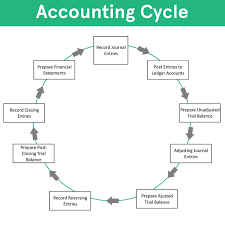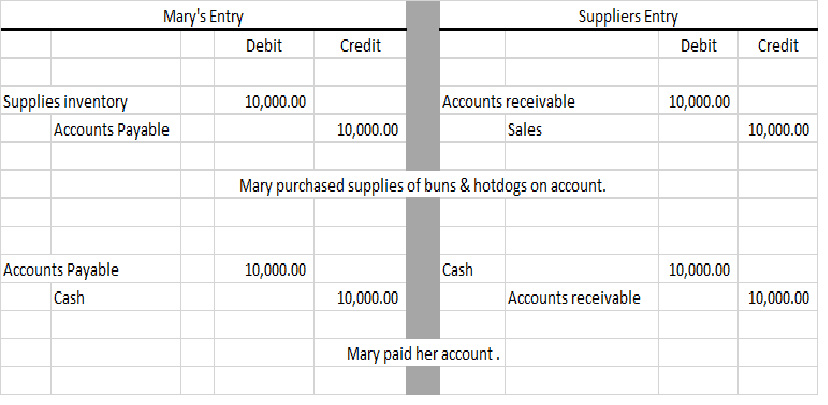- December 13, 2022
- Posted by: Visa Imigration
- Category: Bookkeeping

However, merging your business and personal bank accounts is most likely going to cause you headaches sooner rather than later. A small business can likely do all its own bookkeeping using accounting software. Many of the operations are automated in the software, making it easy to get accurate debits and credits entered.
Step 3: Choose an accounting method: Cash or Accrual
Bookkeeping is the regular practice of updating a company’s financial records to reflect all financial transactions, credits, and debits. There’s good news for business owners who want to simplify doing their books. Business owners who don’t want the burden of data entry can hire an online bookkeeping service.

Whichever accounting method you choose, the best way to make sure you’re dotting your i’s and crossing your t’s is to maintain order in the way you manage your bookkeeping. Routinely cross-check receipts and cash flow during your weekly bookkeeping session to keep your cash systems polished and up-to-date. If you’ve never set up a business bank account before, getting started is easy. First, find a bank that offers the best fit for your business needs—even if you already have a relationship with a bank, it doesn’t hurt to consider other options. Your priorities may vary, but consider looking for an account that offers no or minimal bank fees.
Understand the Income Statements and Balance Sheets
- It serves as a road map to ensure you correctly record and report all necessary financial transactions are recorded and reported correctly.
- It’s important to send invoices right after delivering the goods or performing services.
- Accurate, up-to-date bookkeeping is the backbone of any successful small business.
- The responsibilities handled by a service will depend on the provider, so be sure to discuss the scope of work and compare options to find the right fit.
- It’s important to track your AR to ensure you receive payment from your customers on time.
During that hour, you can work through a checklist of routine tasks. Under double-entry bookkeeping, all transactions are entered into a journal, and then each item is entered into the general ledger twice, as both a debit and a credit. Keeping an accurate, up-to-date set of books is the best way to keep track of tax deductions (expenses that you can deduct from your taxable income). You need to know your net profit in order to do your taxes, and revenue and cash budgets to figure that out, you need to know your total income and expenses. And the only way to know that for sure is to have accurate, up-to-date books. The specific answer to this question can vary somewhat depending on the extent of bookkeeping services your company needs, and how often you require the services of a small business bookkeeper.
Keep track of cash payments
Frequent financial reports are a great way to check on your budget, and figure out where you can make adjustments if necessary. When your business income mixes with your personal accounts, it doesn’t make more money—it just makes a mess. Most accounting software offers a range of features that are suited for almost any type of small business. Despite the importance of accurate bookkeeping practices, most people don’t feel entirely confident with maintaining detailed business finances. irs receipts requirements Whether it’s a lack of interest or knowledge, many businesses outsource this process to a professional bookkeeper to ensure accurate and healthy finances all around. There are many easy programs to use for small business bookkeeping.
You need it to do your taxes
Bookkeeping beginners need quick wins to get started quickly and efficiently. The tips below are industry standards that will help any small business excel at bookkeeping. The Chartered Professional Accountant firm directories on the American Institute of CPAs website is another great place to find a bookkeeper. Kimberlee Leonard has 22 years of experience as a freelance writer. Her work has been featured on US News and World Report, Business.com and Fit Small Business. She brings practical experience as a business owner and insurance agent to her role as a small business writer.
Mixing together personal and business expenses in the same account can also result in unnecessary stress when you need to file taxes or do your bookkeeping. It could mean a business expense gets lost in your personal account and you miss out on an important deduction. Do you have more questions about the bookkeeping process for small businesses? Wondering how best to collect and track financial information, deal with expense management, and ensure healthy cash flow for your business? Here are some of the most frequently asked questions on bookkeeping for small businesses.
Many business owners aren’t aware of how much it costs to operate their business. It’s important to know how much every individual part requires to function properly. Understanding helps identify shortfalls, discrepancies, and other issues that are important to catch early. Even if you aren’t planning on growing any time soon, you need to have a sense of how much money is coming in versus what is going out. On top of that, you need the data used in bookkeeping to file your taxes accurately.
Bookkeeping, in large part, has to do with accurate recordkeeping. This means recording transactions and saving bills, invoices and receipts so you have all the data you need to run reports. Accounting software makes it easy to store these documents and reference them in case of an accounting error or audit. Bookkeeping is the backbone of your accounting and financial systems, and can impact the growth and success of your small business. It encompasses a variety of day-to-day tasks, including basic data entry, categorizing transactions, managing accounts receivable and running payroll. Single-entry bookkeeping is simpler — you only have to record each ward’s 50 property transaction once.




